- Learning time
- 30 minutes
- First play time
- 80 minutes
Targi
Designed by: Andreas Steiger
Targi is a two-player game where your goal is to collect Tribe cards – but to do so you must first gather the resources needed to buy them: salt, pepper, dates, and gold.
Although there is a loose theme here, the game is more of a puzzle than a story: over twelve rounds, players place their Targi pieces on the edge of a 4×4 grid of cards representing actions or rewards. When all workers are placed, players gather the rewards (and action the actions) of not only where their workers were placed, but the intersection of the columns and rows the workers are on: if you’ve placed Targi on row two and column four, for instance, you’d follow the line along both those axis and collect the card where they intersect.
The resource-gathering is simple: if you’re on a salt/pepper/date card, simply take the reward from the bank. Likewise with a coin card. The Tribe cards need to be paid for with these resources, and having done so you build a 3×4 tableau of cards in front of you (if you cannot or choose not to pay, you can hold just a single card in your hand). As well as being worth victory points, many Tribe cards also give you special abilities, and how you place them in your tableau can be crucial too. There are different types of Tribes (camp, camel, well, and so on) and building a row all of one type will get you bonus points at the end of the game.
There are a couple of other wrinkles too: the trader and silversmith card allow you to cash goods or coins in for coins or points, and although the border cards never change whenever a card is claimed from the central area, that card goes and is replaced, meaning there is an element of unpredictability to the landscape of the game.
There is always one space you cannot place a Targi on, occupied by the robber, who doubles up as a round marker as he advances clockwise around the edge of the grid. Whenever he reaches a corner, there is a raid, and players have items stolen from them! After the last raid – or when any player builds the twelfth card in their tableau, the game ends and points are scored.
Joe says
Targi is delightful - never have salt, pepper and dates been so harmoniously combined into a single dish. I played this a few times a good few years ago, and when I played again recently it had lost none of its charm. It sometimes feels very slightly too long for what you get, but if time isn't a worry then I whole-heartedly recommend it.
The guru's verdict
-
Take That!
Take That!
There's no combat, no theft and only one Tribe card that directly affects an opponent. But the placement of the Targi pieces gives players an ability to play spoiling tactics: your opponent make claim a certain row, but if you can see what card they desperately need, you can stop them getting it by claiming the intersecting column.
-
Fidget Factor!
Fidget Factor!
Low to moderate.
-
Brain Burn!
Brain Burn!
It's not a massively heavy game on the brain, but there's definitely a sense of juggling possibilities, combined with a little bit of luck-pushing.
-
Again Again!
Again Again!
The border cards are always the same but the nine central cards are always changing. The challenge of maximising what you can get from your Targi, however, is what makes the game feel more-ish.

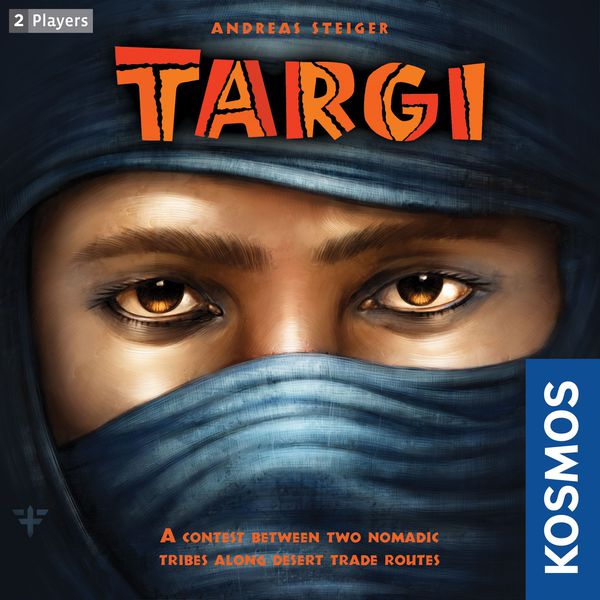

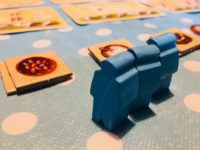
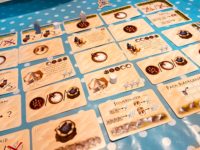
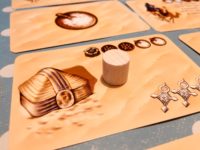
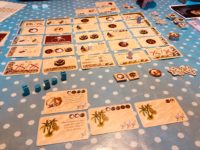
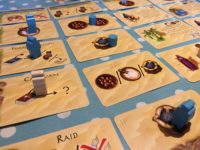


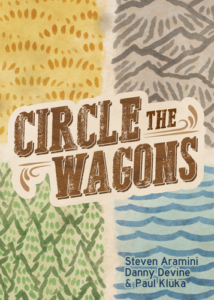
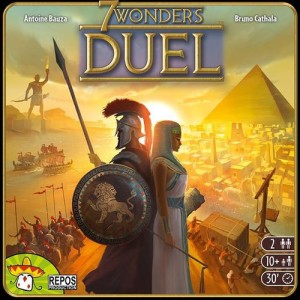
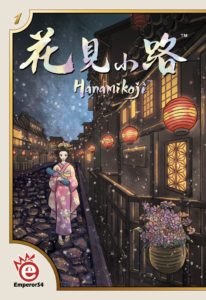
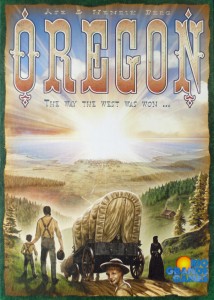
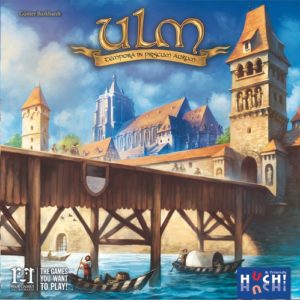
Sam says
A clever design, this, where one play will illuminate how key the Targi placement is, with a kind of push/pull between going for what you really want yourself and playing the spoiling move for your opponent. The Tribes supply a sense of strategy and momentum and the cards themselves making up the 'board' mean you can play in a cafe or pub without lugging a huge box around.